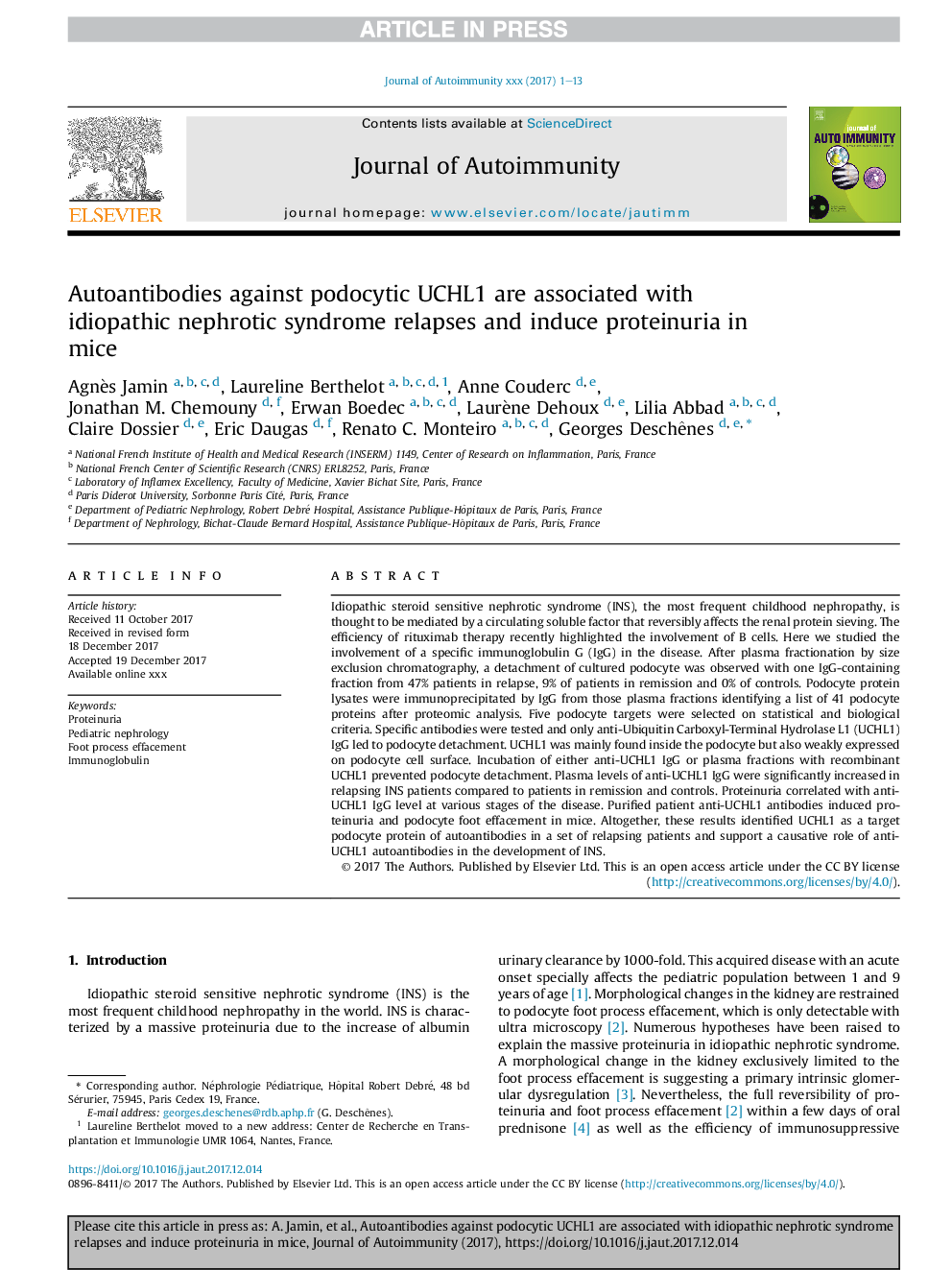| Article ID | Journal | Published Year | Pages | File Type |
|---|---|---|---|---|
| 8739547 | Journal of Autoimmunity | 2018 | 13 Pages |
Abstract
Idiopathic steroid sensitive nephrotic syndrome (INS), the most frequent childhood nephropathy, is thought to be mediated by a circulating soluble factor that reversibly affects the renal protein sieving. The efficiency of rituximab therapy recently highlighted the involvement of B cells. Here we studied the involvement of a specific immunoglobulin G (IgG) in the disease. After plasma fractionation by size exclusion chromatography, a detachment of cultured podocyte was observed with one IgG-containing fraction from 47% patients in relapse, 9% of patients in remission and 0% of controls. Podocyte protein lysates were immunoprecipitated by IgG from those plasma fractions identifying a list of 41 podocyte proteins after proteomic analysis. Five podocyte targets were selected on statistical and biological criteria. Specific antibodies were tested and only anti-Ubiquitin Carboxyl-Terminal Hydrolase L1 (UCHL1) IgG led to podocyte detachment. UCHL1 was mainly found inside the podocyte but also weakly expressed on podocyte cell surface. Incubation of either anti-UCHL1 IgG or plasma fractions with recombinant UCHL1 prevented podocyte detachment. Plasma levels of anti-UCHL1 IgG were significantly increased in relapsing INS patients compared to patients in remission and controls. Proteinuria correlated with anti-UCHL1 IgG level at various stages of the disease. Purified patient anti-UCHL1 antibodies induced proteinuria and podocyte foot effacement in mice. Altogether, these results identified UCHL1 as a target podocyte protein of autoantibodies in a set of relapsing patients and support a causative role of anti-UCHL1 autoantibodies in the development of INS.
Related Topics
Life Sciences
Immunology and Microbiology
Immunology
Authors
Agnès Jamin, Laureline Berthelot, Anne Couderc, Jonathan M. Chemouny, Erwan Boedec, Laurène Dehoux, Lilia Abbad, Claire Dossier, Eric Daugas, Renato C. Monteiro, Georges Deschênes,
